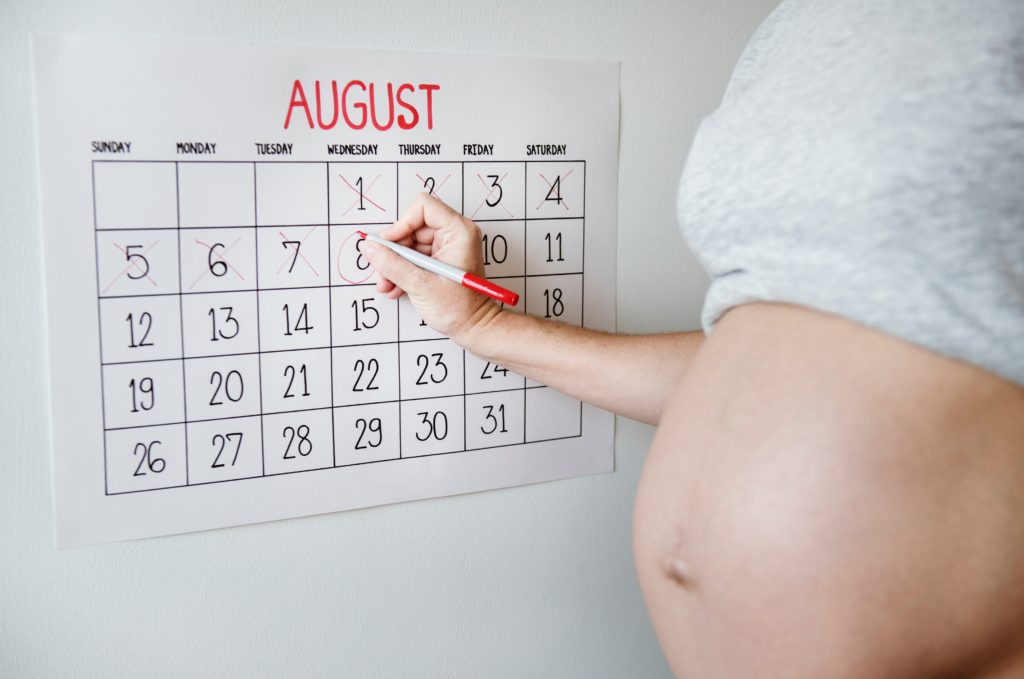Improve your chances of getting pregnant with our easy-to-follow tips ( without medical intervention).


When it comes to starting or expanding a family, understanding fertility and its significance is crucial. The desire to conceive and have a child is a deeply personal and meaningful journey for many individuals. However, it’s important to acknowledge that fertility can be a complex and sometimes challenging process.
Many individuals and couples face difficulties in conceiving, which can lead to frustration, anxiety, and even feelings of inadequacy. In this blog, we will learn how to improve Your Chances Of Getting Pregnant.
It’s essential to approach the topic of fertility with empathy and compassion. Recognize that infertility is a common issue affecting millions of people worldwide. By acknowledging the challenges individuals face, we can create a supportive and understanding environment that encourages open discussions about fertility.


By taking proactive steps and implementing these strategies, individuals can optimize their reproductive health and improve their odds of conception.
We understand that the path to parenthood may be different for everyone. Whether you’re just starting to explore the possibilities of pregnancy or have been trying for some time, this article will provide valuable insights and actionable advice.
Remember, each person’s fertility journey is unique, and there is no one-size-fits-all solution. However, by equipping yourself with knowledge and making informed choices, you can navigate the challenges of fertility with confidence.
Begin your surrogacy journey with IVF Conceptions today!
Mobile: +91-8800481100 ( WhatsApp, Line, Viber)
Email: neelam@ivfconceptions.com
Web: www.completesurrogacy.com
Factors that affect your probability of being pregnant
Many factors contribute to the rate of pregnancy and today we will cover them. So, that next time you wish to get pregnant, you do know what exactly to do!
- Age – After hitting the age of 30, the chances of conceit decrease as you get older and fall sharply in the 40s in any given month. Younger the better chance to get pregnant.
- Frequency of sex – You are less likely to get pregnant if you have less sex especially around the time of ovulation.
- Female and male infertility – Sometimes underlying infertility issues either in males or females or both can lead to a delay in pregnancy. If this is the case, you need to seek consultation with an infertility expert or IVF doctor. He or she can evaluate your fertility after doing some tests and scans. If you do not get pregnant even after one year of attempting to conceive, consult a fertility specialist. Do not waste time as with age, infertility treatments are costly and not as successful.
- Irregular menstrual cycle – It’s difficult to determine when you ovulate because of an erratic cycle, thereby making it impossible to know the optimal time for sex.
Therefore, there are many reasons why you may not get pregnant. So, you can change a few of them. It is possible to increase your chances of pregnancy by making a few changes in your lifestyle.


Factors to improve your chances of getting pregnant.
# 1. Prioritize Your Health and Wellness
Maintaining a healthy lifestyle and balanced fertility diet is crucial for fertility. Start by achieving and maintaining a healthy weight, as both underweight and overweight conditions can impact fertility. Focus on consuming a balanced diet rich in fruits, vegetables, whole grains, lean proteins, and healthy fats. Engage in regular physical activity to promote overall health and improve fertility.
Managing stress levels is essential, as high levels of stress can disrupt hormonal balance. Additionally, avoid harmful substances such as smoking, excessive alcohol consumption, and recreational drugs, as they can negatively affect fertility.
# 2. Understand Your Menstrual Cycle and Ovulation
Tracking your menstrual cycle is vital to identify ovulation and your fertile window. Keep a record of your menstrual cycles, noting the start and end dates.
Look for signs of ovulation, such as changes in cervical mucus consistency and basal body temperature. Use ovulation predictor kits or smartphone apps to help pinpoint your most fertile days accurately.
# 3. Optimize Sexual Timing and Positions
To maximize your chances of getting pregnant, have regular intercourse during your fertile window. Aim for intimacy every two to three days throughout the month to ensure sperm availability.
Experiment with sexual positions that promote deep penetration, as this can facilitate sperm reaching the cervix and increase the likelihood of conception.
It can be confusing to determine exactly the days you are fertile to become pregnant. You will ovulate around 14 days before the coming period if you have a typical 28-day cycle, but not each of us has a predictable period.
A lot of apps are available to help you track your process. Also, there are several techniques you may use to mark the ovulation period. Some of them are –
- Look for basal body temperature – Keep tabs on your basal body is one way, as soon then you ovulate you will be able to see a slight decrease in temperature and then a spike. Also, shortly before ovulating, you can find improvements in your cervical mucus. The change in temperature can be just half a degree. You may have ovulated a signal. Keep in mind that an egg survives only approximately 24 hours after ovulation so this so-called fertile window may not provide a good indicator of your sex time.
- Use ovulation predictor kit – A drugstore ovulation predictor kit can be used to let you know exactly when ovulation is happening in your urine by detecting an increase in luteinizing hormone 36-48 hours before ovulation. It’s time to get cozy until you know you’re about to ovulate. Have sex on the day that the ovulation predictor says and the chances of pregnancy will be highest.
- Go for follicular monitoring – You should speak to your doctor about your choices if you find it difficult to monitor your ovulation using the above methods. Some physicians monitor you regularly with blood hormone tests and ovary ultrasounds. It lets you know exactly when your ovulation is going to occur.
# 4. Create a Healthy Environment for Conception
Age plays a significant role in fertility, so it’s essential to understand its impact. Minimize exposure to toxins and environmental pollutants that can affect reproductive health.
Consider genetic testing and counseling to identify any underlying genetic conditions. Address any existing health conditions that may affect fertility, such as polycystic ovary syndrome (PCOS) or endometriosis.
Conception is more likely if the woman orgasms (or doesn’t). Unfortunately, these arguments are not backed by any research. Your lubricant is the one thing you ought to consider.
Sperm motility and viability can be decreased by some. So, try to avoid lubricants like jelly and start using canola oil as a lubricant. It won’t affect the fertility process.
# 5. Focus on Nutritional Supplements
Prenatal vitamins containing folic acid are crucial for preconception and early pregnancy. Discuss additional supplements with your healthcare provider, including folic acid and omega-3 fatty acids, as they may support fertility. Each individual’s needs may vary, so consult with a healthcare professional for personalized recommendations.
Also, studies have shown that women who are deficient in iron may experience poor quality of the egg, and even stop ovulation, as well as folic acid in the first few weeks of pregnancy life to prevent neural defects in the heart and limb.
Deficiencies of vitamin B12 can also contribute to premature ovulation, and a deficiency of vitamin D can affect the balance of hormones. Vitamin C can increase the number of hormones and also selenium, which helps prevent free-radical damage to eggs and sperm.

 # 6. Seek Professional Guidance
# 6. Seek Professional Guidance
If you’ve been trying to conceive without success, it may be time to consult with a fertility specialist. They can guide you through fertility testing and diagnostic procedures to identify any underlying issues.
Depending on your situation, they may recommend assisted reproductive technologies (ART) such as in vitro fertilization (IVF) or intrauterine insemination (IUI).
Fertility medications and hormone therapy may also be considered to address specific fertility challenges.
# 7. Take Care of Your Emotional Well-being
The fertility journey can be emotionally taxing, so it’s crucial to seek support. Lean on loved ones for emotional support and share your feelings with them. Consider joining support groups or online communities where you can connect with others going through similar experiences.
If needed, seek counseling or therapy services to help navigate the emotional challenges associated with infertility. Practice stress-relief techniques such as meditation, yoga, or engaging in hobbies that bring you joy.
#8. Maintain Healthy Weight
It is the perfect time to do so now if you have to shed a few pounds. Being overweight can have a detrimental impact on your pregnancy, and being underweight can also cause issues, particularly if your weight is irregular.
Being overweight can increase the risk of resistance to insulin, which can interfere with ovulation. For males, obesity is associated with lower levels of testosterone and decreased production of sperm. Speak to your doctor if your weight may be a concern, either for you or your partner.
#9. Quit Smoking
Studies have shown that smoking women take longer to become pregnant and have an increased chance of infertility.
The risk of miscarriage, ectopic pregnancy, and complications while still pregnant is significantly increased with smoking. So, you would like to stop smoking if you are trying to conceive or already conceived.
Tobacco and marijuana are both no-nos to the father as they can affect the production of semen. Passive smoking is as harmful to a woman as active smoking. So, the partner should take care of the smoking factor if they want a baby.
Read more about pregnancy:
Role of Vitamin D in fertility and Pregnancy
How is COVID-19 affecting fertility and pregnancy?


Conclusion
So, by now you know how to improve your chances of getting pregnant without medical intervention.
So, the bottom line is that if you do not have underlying infertility issues, you can get pregnant within a couple of months. It is good to follow a healthy and holistic lifestyle.
By implementing these proven strategies, you can increase your chances of getting pregnant and embark on your journey toward parenthood with confidence. Prioritize your health, understand your menstrual cycle, optimize sexual timing, create a healthy conception environment, focus on nutritional supplements, seek professional guidance when needed, and take care of your emotional well-being.
Remember, the path to parenthood may have ups and downs, but with perseverance and support, your dream of starting a family can become a reality.
If still you are unable to get pregnant, professional medical help is available. Get in touch with an infertility specialist.
Read more about assisted reproductive pregnancy:
All you ever need to know about the IVF process?
All about IVF with egg donation?
FAQ For How to Improve Your Chances Of Getting Pregnant
What are the common causes of infertility in men and women?
Infertility can have various causes in both men and women. Common causes of male infertility include low sperm count, poor sperm motility, abnormal sperm shape, hormonal imbalances, genetic disorders, and certain health conditions like infections or blockages.
In women, common causes include ovulation disorders, hormonal imbalances, structural issues with the reproductive organs, endometriosis, polycystic ovary syndrome (PCOS), uterine fibroids, and certain health conditions or infections
Yes, stress can impact fertility. High levels of stress can disrupt the hormonal balance in both men and women, leading to fertility issues. Chronic stress can affect ovulation in women and sperm production in men. It may also impact sexual function and desire, potentially affecting the frequency of intercourse.
Therefore, managing stress and adopting stress-reduction techniques, such as exercise, meditation, and counseling, can be beneficial for fertility.
Age is a significant factor in determining fertility, especially for women. As women age, the number and quality of their eggs decline, resulting in a decreased chance of conception and an increased risk of miscarriage. Men’s fertility also declines with age, but the impact is generally not as pronounced as in women.
However, advanced paternal age may increase the risk of certain genetic disorders in offspring.
While some natural remedies and supplements claim to improve fertility, it’s important to approach them with caution. Some supplements, like folic acid and coenzyme Q10, may have potential benefits for fertility.
However, it’s crucial to consult with a healthcare professional before starting any new supplements or herbal remedies. They can provide guidance based on your specific situation and help determine the most appropriate approach
For couples under the age of 35, it is generally recommended to try to conceive for at least one year before seeking medical assistance for infertility. For couples over the age of 35, it is advised to seek medical help after six months of unsuccessful attempts.
However, these timelines can vary depending on individual circumstances, such as known fertility issues or medical history. If you have concerns about fertility, it’s best to consult with a healthcare professional who specializes in reproductive medicine.
Some birth control methods, like hormonal contraceptives (e.g., birth control pills, patches, injections), may temporarily delay the return of fertility after discontinuation. However, for most birth control methods, fertility typically returns quickly once the contraceptive method is stopped.
If you have concerns about the impact of a specific birth control method on future fertility, it’s recommended to consult with a healthcare professional for personalized advice.
While certain sexual positions are often suggested to increase the chances of conception, there is limited scientific evidence to support their effectiveness. The most important factor for conception is the timing of intercourse during the woman’s fertile window when ovulation occurs.
Regular intercourse every 2-3 days throughout the menstrual cycle can maximize the chances of conception.
It is unlikely but possible for a woman to get pregnant during her period. Sperm can survive inside a woman’s body for up to five days, and if ovulation occurs shortly after menstruation, it is possible for fertilization to take place.
However, the chances of pregnancy during menstruation are generally low. If you want to prevent pregnancy, it’s important to use contraception consistently and effectively throughout the menstrual cycle.
Supporting your partner emotionally during the fertility journey is crucial. You can actively listen to their concerns, be understanding and patient, and offer reassurance and encouragement. It’s important to communicate openly and share your own feelings as well.
Participating in medical appointments together, educating yourselves about fertility, and seeking support from infertility support groups or counseling can also be beneficial. Remember to respect each other’s emotions and cope with the challenges as a team, seeking professional help if needed
If you’d like to learn more about IVF, Egg Donation, or surrogacy services globally, check out the rest of our website: IVF Conceptions. We offer legally secure and affordable surrogacy consulting services for FREE.
Begin your surrogacy journey with IVF Conceptions today!
Mobile: +91-8800481100 ( WhatsApp, Line, Viber)
Email: neelam@ivfconceptions.com
Web: www.completesurrogacy.com
References for this article:
https://www.mayoclinic.org/diseases-conditions/infertility/symptoms-causes/syc-20354317
